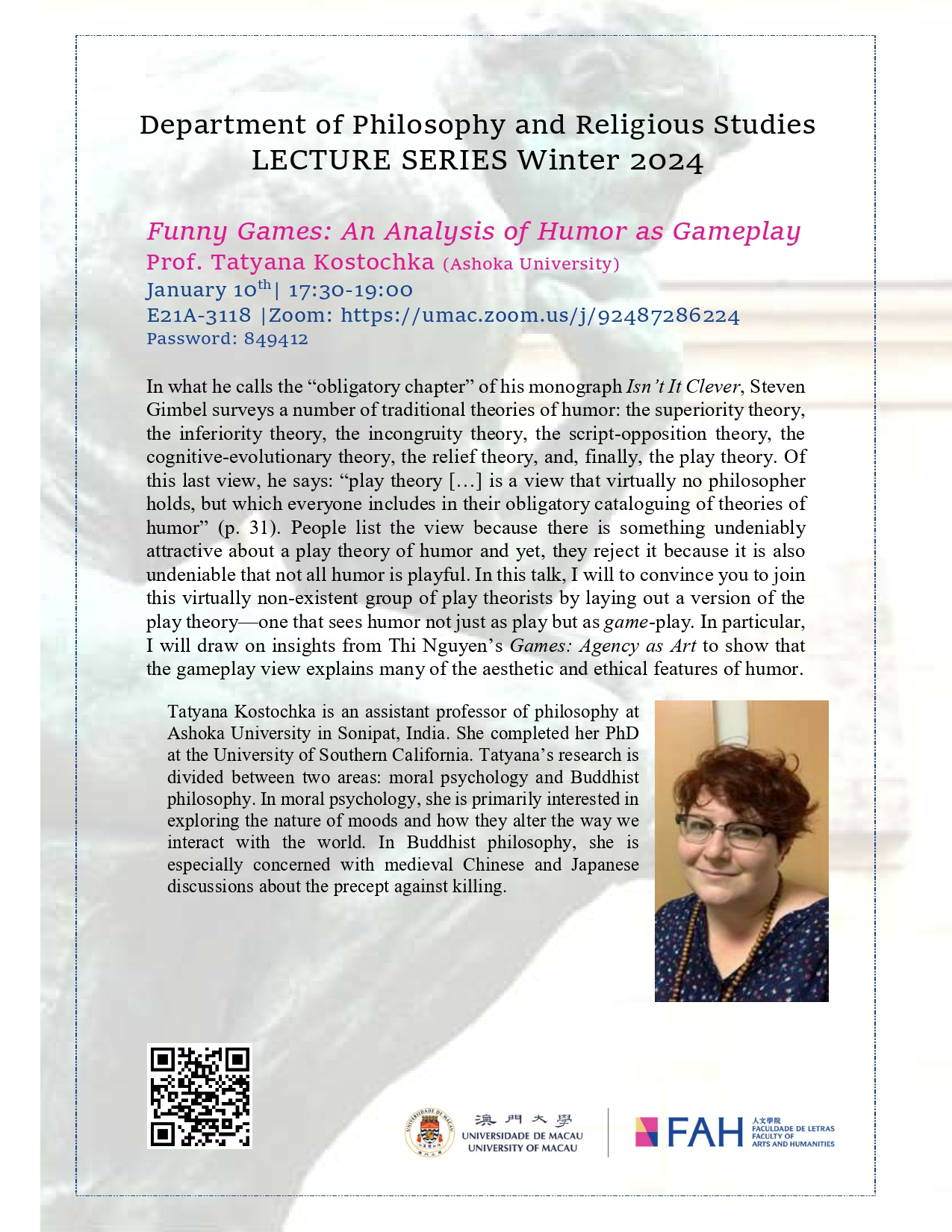

FAH/DPHIL Lecture Series – “Funny Games: An Analysis of Humor as Gameplay” by Prof. Tatyana Kostochka, Ashoka University, India
2024-01-10 @ 5:30 pm ~ 7:00 pm
Zoom: https://umac.zoom.us/j/92487286224
Password: 849412
Abstract
In what he calls the “obligatory chapter” of his monograph Isn’t It Clever, Steven Gimbel surveys a number of traditional theories of humor: the superiority theory, the inferiority theory, the incongruity theory, the script-opposition theory, the cognitive-evolutionary theory, the relief theory, and, finally, the play theory. Of this last view, he says: “play theory […] is a view that virtually no philosopher holds, but which everyone includes in their obligatory cataloguing of theories of humor” (p. 31). People list the view because there is something undeniably attractive about a play theory of humor and yet, they reject it because it is also undeniable that not all humor is playful. In this talk, I will to convince you to join this virtually non-existent group of play theorists by laying out a version of the play theory—one that sees humor not just as play but as game-play. In particular, I will draw on insights from Thi Nguyen’s Games: Agency as Art to show that the gameplay view explains many of the aesthetic and ethical features of humor.
Bio
Tatyana Kostochka is an assistant professor of philosophy at Ashoka University in Sonipat, India. She completed her PhD at the University of Southern California. Tatyana’s research is divided between two areas: moral psychology and Buddhist philosophy. In moral psychology, she is primarily interested in exploring the nature of moods and how they alter the way we interact with the world. In Buddhist philosophy, she is especially concerned with medieval Chinese and Japanese discussions about the precept against killing.

